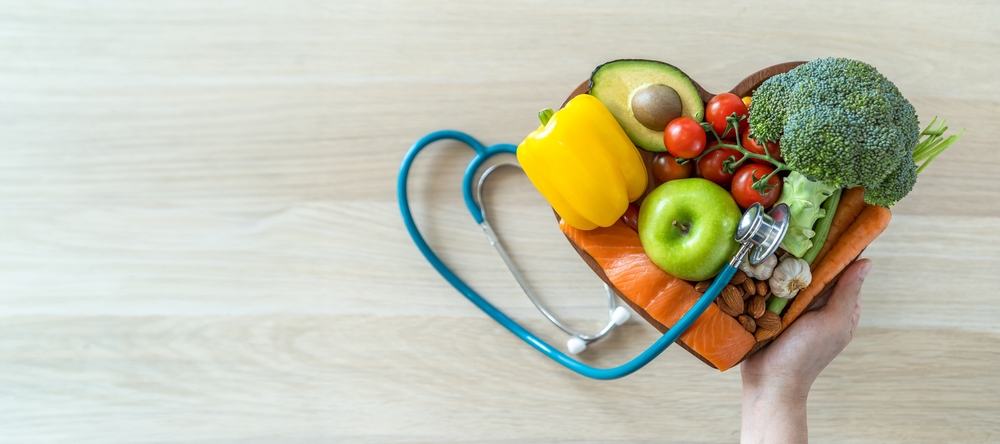Nutrition and Diet Tips: Simple Ways to Boost Your Health
Hey there! Have you ever wondered why some days you feel full of energy while other days you just want to take a nap? It turns out a lot of that has to do with what we eat! Nutrition and diet play a huge role in how we feel and function. In this guide, we’ll explore some simple tips on nutrition and diet that can help boost your health. So grab a snack (maybe a healthy one!) and let’s dive in!
Understanding Nutrition: What Is It?
Nutrition is all about the food we eat and how it affects our bodies. Imagine your body is like a car; it needs the right fuel to run smoothly. If you put in the wrong kind of fuel, things might not work as well. That’s why it’s important to understand nutrition. It’s not just about eating; it’s about eating right!
Why Is Nutrition Important?
Eating a balanced diet helps you in many ways:
- Energy Levels: The right foods give you the energy you need to keep up with school, sports, and your friends.
- Better Focus: When you eat well, you’re more likely to concentrate in class and remember what you learn.
- Stronger Immune System: Healthy eating helps your body fight off colds and other illnesses.
- Improved Mood: Ever noticed how you feel happier after a healthy meal? Nutrition can affect your emotions too!

Key Nutrients You Need
To keep our bodies running at their best, we need to consume a variety of nutrients. Let’s break down the main types of nutrients and why they’re important.
Carbohydrates: Your Body’s Main Fuel
Carbohydrates are the body’s primary source of energy. Think of them as the gas that powers your car. You can find carbs in foods like:
- Whole Grains: Brown rice, whole-wheat bread, and oatmeal are excellent choices.
- Fruits: Apples, bananas, and berries are tasty and healthy.
- Vegetables: Carrots, potatoes, and leafy greens also provide carbohydrates.
Good Carbs vs. Bad Carbs
Not all carbohydrates are created equal. Here’s a quick guide:
- Good Carbs: These are found in whole foods like fruits, vegetables, and whole grains. They are packed with nutrients and fiber, which help keep you full and energized.
- Bad Carbs: Sugary snacks, sodas, and white bread can cause a quick energy spike followed by a crash. Try to limit these in your diet!
Proteins: Building Blocks of Your Body
Proteins are essential for growth and repair. They help build muscles, skin, and organs. Here are some great sources of protein:
- Meats: Chicken, turkey, and fish (like salmon and tuna).
- Plant-Based Proteins: Beans, lentils, and tofu.
- Dairy: Milk, cheese, and yogurt.

Fats: Not All Fats Are Bad
Yes, you read that right! Your body needs healthy fats for brain function and overall health. Here’s what you should know:
- Healthy Fats: These are found in avocados, nuts, seeds, and olive oil. They help your body absorb important vitamins.
- Unhealthy Fats: Try to limit trans fats and saturated fats, which are often found in fried foods and snacks.
Vitamins and Minerals: Small but Mighty
Vitamins and minerals are crucial for many bodily functions. They help your body grow, develop, and stay healthy. Here are a few important ones:
- Vitamin C: Helps your immune system. You can find it in oranges, strawberries, and bell peppers.
- Calcium: Essential for strong bones. Look for it in dairy products and leafy greens like kale.
- Iron: Important for blood health. Sources include red meat, beans, and spinach.
Water: The Unsung Hero
Water is vital for your overall health. It keeps your body hydrated, helps with digestion, and keeps your skin looking great. Aim to drink at least 8 cups (2 liters) of water each day. Here are some tips to help you stay hydrated:
- Carry a Water Bottle: Keep a reusable water bottle with you at school or during activities.
- Infuse Your Water: If plain water is boring, try adding slices of lemon, cucumber, or berries for a refreshing twist.
Simple Nutrition and Diet Tips to Boost Your Health
Now that we know what nutrients are important, let’s look at some practical tips to help you eat healthier every day!

Meal Planning Made Easy
Planning your meals can make a big difference. Here’s how you can get started:
- Create a Weekly Menu: Spend a little time each week deciding what you’ll eat. This can help you avoid unhealthy last-minute choices.
- Make a Grocery List: Write down the healthy foods you need before heading to the store. Stick to your list to resist the temptation of junk food.
Fill Your Plate with Color
Eating a variety of colorful fruits and vegetables is one of the best ways to ensure you’re getting all the nutrients you need. Aim for a rainbow on your plate!
- Red: Tomatoes, strawberries, and bell peppers.
- Orange: Carrots, sweet potatoes, and oranges.
- Green: Spinach, broccoli, and avocados.
Choose Whole Grains Over Refined Grains
Whole grains are much healthier than refined grains. Try to switch to whole-grain options:
- Whole-Grain Bread: Look for “100% whole grain” on the label.
- Brown Rice: A great substitute for white rice.
- Oatmeal: A fantastic breakfast choice that keeps you full for longer.
Practice Portion Control
Understanding portion sizes is important for maintaining a healthy diet. Here are some tips:
- Use Smaller Plates: This can help you serve smaller portions without feeling deprived.
- Listen to Your Body: Pay attention to your hunger cues. Stop eating when you feel satisfied, not stuffed.
Smart Snacking
Snacking can be a part of a healthy diet if you choose the right foods. Here are some healthy snack ideas:
- Fresh fruits like apples and bananas
- Yogurt with berries
- Veggies like carrot sticks and cucumber slices with hummus
Stay Hydrated
Drinking enough water is crucial for your health. Here are a few tips to help you stay hydrated:
- Set Reminders: If you forget to drink water, set reminders on your phone to take a sip every hour.
- Keep It Visible: Place a water bottle on your desk or backpack so you remember to drink.
Making Healthy Eating a Habit
Start Small and Build Up
You don’t have to change everything at once. Start by making small, manageable changes to your diet. For example, try adding one extra serving of fruit or vegetable to your meals each day.
Get Your Family Involved
Eating healthy can be more fun when you involve your family. Here’s how to do it:
- Cook Together: Spend time in the kitchen preparing meals together. It can be a great bonding experience!
- Grocery Shopping: Bring family members with you to choose healthy foods. They might have some great ideas too!
Keep Healthy Foods Accessible
Make it easy to grab healthy snacks by keeping them visible and accessible. Here are some tips:
- Fruit Bowl: Keep fresh fruit in a bowl on the kitchen counter.
- Snack Bags: Portion out nuts or trail mix into small bags for easy snacking.
Be Mindful of Emotional Eating
Sometimes, we eat because we’re bored, stressed, or sad. Here are some ways to be more mindful:
- Identify Triggers: Pay attention to when you feel the urge to snack and ask yourself why. Are you really hungry?
- Find Alternatives: Instead of reaching for food when you’re feeling down, try going for a walk, listening to music, or talking to a friend.
Celebrate Your Successes
Remember to celebrate your healthy choices, no matter how small! Acknowledging your progress can help motivate you to keep going. Treat yourself to a fun activity or a new book when you reach a health goal.
FAQs About Nutrition and Diet
1. What is a balanced diet?
A balanced diet means eating a variety of foods from different food groups, including carbohydrates, proteins, fats, vitamins, and minerals. This helps ensure you get all the nutrients your body needs.
2. How can I make healthy meals quickly?
To make healthy meals quickly, prep ingredients in advance. For example, chop vegetables and store them in the fridge, so they’re ready to use in salads or stir-fries.
3. Is it okay to eat junk food sometimes?
Yes, it’s okay to enjoy junk food occasionally! The key is moderation. Make sure that most of your diet consists of healthy foods.
4. How can I stay motivated to eat healthy?
Staying motivated can be easier if you set realistic goals, plan meals ahead, and keep healthy snacks on hand. Find what works best for you!
5. How much water should I drink daily?
Aim for about 8 cups (2 liters) of water a day, but remember that individual needs may vary based on activity level and climate. Listen to your body’s thirst signals!
Conclusion
Eating well is not just about following strict diets; it’s about making better choices that fit into your life. By understanding nutrition and implementing simple tips into your daily routine, you can boost your health and feel your best. Remember, every small step counts. So go ahead, make those changes, and enjoy the journey to a healthier you!



